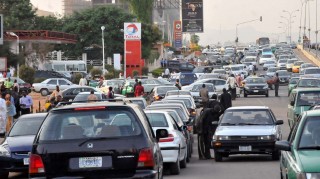Since the COVID-19 (coronavirus) pandemic in 2020, many governments in sub-Saharan Africa have sort ways to secure financing to cushion the negative economic impacts that trailed the virus. Between 2020 and 2021, about 40 sub-Saharan African countries secured $25,934.24 million from the International Monetary Fund (IMF), plunging their economies further in debt. In addition to these loans, some countries (like Nigeria) are moving to issue Eurobonds to fund fuel subsidies, despite the increasing debt.
Fuel subsidy is an intervention introduced to help reduce the importation of fuel to make the products available and affordable for consumers. Some governments introduce fuel subsidies when there is a spike in crude oil prices on the global market. This is done to temporarily ease the impact of the inflation caused by global market pulls. But it eventually increases the national debt. This is why the Ugandan government recently resisted internal pressures to introduce fuel subsidies amid a 19 per cent increase in the price of petrol.
A recent publication reported Moses Kaggwa, the acting Director of Uganda’s Ministry saying that the government cannot afford a subsidy. This is because it would cost it the 1,450 shillings ($0.41) it generates in tax per litre of fuel and increase the need for external borrowing.
Uganda has battled severe inflation since it came out of a two-year lockdown in January. The people expect the government to show concern as living standards become unbearable. As of April 2022, the annual inflation rate in Uganda jumped to 4.9 per cent from 1.9 per cent the previous year, the highest since September 2017. The government’s unwillingness to introduce fuel subsidy is undoubtedly causing a series of chain reactions such as an increase in the cost of fuel, a hike in transportation, an increase in production cost and the stalling of economic activities for some small scale businesses. All these translate to a rise in the standard of living for Ugandans.
However, in the long term, the fuel subsidy removal is expected to help bring about economic development for Uganda as the government focuses on financing other critical sectors of the economy while meeting its Paris Agreement Obligations of a 22 per cent cut on greenhouse gas emissions by 2030. Marketers can now import fuel to capacity as the removal would encourage healthy competition, crash fuel prices, and reduce fuel scarcity- eliminating hoarding and diversion. Other things being equal, Ugandans will enjoy the long term benefit of fuel subsidy removal.








